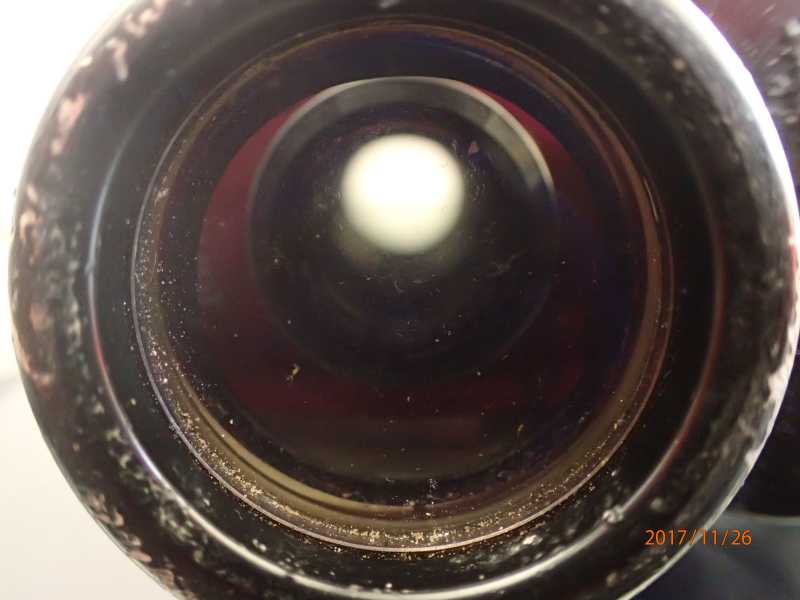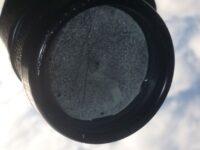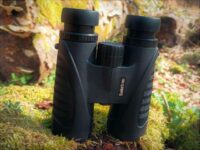Whether you are a recreational user or professional, good binoculars are an important tool that you want to rely on. Modern quality binoculars are fairly sturdy and the few mechanical parts are usually maintenance-free. Still, a little binocular care should be taken to reduce wear and tear to the instrument and to extend its lifetime.
Maintenance and care of binoculars
If you have your binoculars stowed away most of the year and only take it out for occasional observations you might not have to clean it much but still have to store it with care to avoid glass mold. Keep the lenses covered with the protective lens caps that most binoculars come with. Store the binoculars in its carry case or storage bag in a dry cabinet. Placing dehumidifiers, like Silica Gel with it, will secure a dry environment.
Binoculars that are heavily used and are exposed to the weather and outdoor environment have to deal with a number of challenges that affect the functionality of even the best binoculars.
- Moisture – affects the binoculars due to rain or spray and through condensation
- Fungi and algae can grow on lenses and in nooks and crannies
- Tiny insects and bugs may try to make themselves a home
- Grease, grime, and dust that comes from the environment and from contact with the user
With a little care and the right kind of cleaning utensils, it is easy to remove the dirt grime from the instrument and extend the lifetime of your binoculars.
How to clean binoculars
Removing minor debris
Items that are used to remove dust and are found in any photoshop.
- Air Blower
- Lens cleaner brush
- Lens cleaning wipes
- Microfiber Cleaning Cloths
- Spray bottle
The Air blower and lens cleaner brush can be used to easily remove debris such as dust and small particles from the lenses. Be patient and avoid using too much force. You don’t want to scratch the optics with too much pressure. With a spray bottle, you can rinse debris off using distilled water or other special cleaning solutions. Be careful with non-waterproof binoculars.
Remove grease
To remove grease or fingerprints from your binoculars use Lens cleaning wipes and microfibre cloths. Be careful not to apply too much pressure and always clean lenses first with a lens cleaner brush the air blower. Small grains and debris particles could otherwise easily scratch the coating of the lenses.
Do not use dry paper wipes and strong solvents as they could attack and damage different materials, seals, and coatings. If you have to use solvents use at least 90% ethyl alcohol or 99.9% isopropyl alcohol. This dissolves fat so that it can be easily wiped away, and alcohol residues evaporate without leaving any residue.
The best would be if lenses would not come in contact at all with grime and fingerprints as this will inevitably lead to changes in the glass surface. Dirt that combines with the moisture in the air can form acids which could damage the lens coatings. Fingerprints are made of organic material that is left on surfaces, this could provide an environment for mold or fungi to grow. Unfortunately, dirt and debris cannot be completely avoided. So it should be promptly removed.
Rubber coating care
To remove the dirt and grime from your binoculars’ rubber coating, use a damp cloth or sponge and soap or dishwashing detergent. To maintain the rubber coating I use a silicon spray, which I carefully spray on a cloth and then wipe the coating with. Some people use talcum.
Fungus in binoculars
Fungi in binoculars is a big problem. It occurs usually during storage under the wrong conditions.
Fungal spores are almost everywhere. Soon as spores find a suitable breeding ground, mold begins to grow. The fungus can be recognized by fine filaments growing on the lens surfaces. The waste products from the fungi are aggressive and will etch the lenses. Cleaning may remove the fungus, but not the damage left to the glass.
Nitrogen filled binoculars will not have much of an internal mold problem as their water and fog-proof feature provides a sufficient barrier. However, fungal growth may occur on the outer surfaces of the objective lenses when stored in a humid environment. Proper binoculars care and storage reduces the risk
Here is a very good detailed guide on how to clean fungus from optics.



